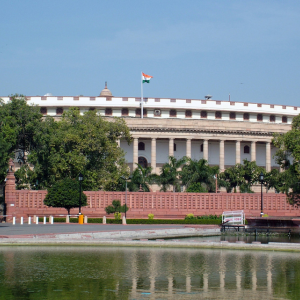English
Public trust “ambush” bill

Challenge for small traders and startups
Recently, the Jan Vishwas Bill has been passed by the Lok Sabha of the Parliament, despite the huge uproar in Manipur by the Central Government. And now it will be passed by the Rajya Sabha and will be sent to the President. In this bill, the Joint Parliamentary Committee had proposed amendment in 183 provisions of about 42 Acts related to 19 ministries through the Public Trust Bill. And in these provisions
, the provision of fine has been kept by removing the provision of punishment. These include Public Debt Act 1944, Pharmacy Act 1948, Cinematograph Act 1952, Copyright Act 1957, Trade Marks Act 1999, Railways Act 1989, Information Technology Act 2000, Drugs and Cosmetics Act 1940, Motor Vehicles Act 1988, Food Safety and Standards Act 2006 There are 42 Acts including Prevention of Money Laundering Act 2002, Patents Act 1970, Environment (Protection) Act 1986, Motor Vehicles Act 1988. In which earlier there was a provision of fine along with punishment.

Surprisingly, the opposition has not raised any specific objection regarding this bill. This bill has been described as important for making business easier in India. And this bill has been brought for big businessmen only. It can be said so.
The most important for us is the Food Safety and Standards Act 2006, the Drugs and Cosmetics Act 1940, the Environment (Protection) Act 1986, removing the provisions of punishment and increasing the fine.

Food Safety and Standards Act 2006
The Act sets up a National Food Safety Commission for food safety, which is responsible for monitoring and resolving issues related to food safety of citizens. Under this act, the state governments are also empowered to make rules and regulations for food security so that they can make proper arrangements for food security.
This act has been amended several times in the past and the punishment for many types of food offenses has been reduced or removed. After the introduction of the Jan Vishwas Bill, a provision of fine of 10 lakh has been made by removing the provision of punishment for adulteration, false propaganda, selling fake, expired goods in the food sector. Not only in the food laws, but similarly in the pharmaceutical and cosmetic sector and environment protection laws, the provision of punishment has been removed and only the provision of fine has been kept.

Let us understand the importance of fine in food laws with an example. A small milk trader collects milk from the surrounding areas and sells it. If any milk producer or farmer has given milk that is fake or of low quality according to the prescribed standards and that trader is caught in some way or intentionally or due to any personal enmity, then he will not be punished but he will have to pay a fine of 10 lakhs. Means that small milk traders will have to sell everything and pay the fine. But the company selling packaged milk by taking milk from the farmers and cattle herders of the same area will not cost more than 10 lakhs. Because the provision of punishment would have ended. And how corruption is prevalent in the government system in India. Everyone is public.
But now the small milk traders in the same area will gradually end and the corporate company will establish its dominance. By repressing the cattle readers, they will take milk at cheap prices and by selling it at expensive prices, they will also exploit them. Only the corporate company will be benefited. Similarly, spices, small shopkeepers, and traders will gradually end and only malls or supermarkets will exist in place of small shops.

There is no question on both the intention and intention of the government. But after the introduction of this bill, the market will come into the hands of the capitalists, which is not in the interest of the economy and the common citizens in any way. Till now, in the interest of the consumer, the consumer court used to provide compensation to the victim in the compensation provision. And the company also had to pay because there was a provision of punishment. But after this bill the company can get away with paying a fine to the government. And the victim will remain a victim. Whether he will get any compensation or not is not yet clear.

Till now the corporate companies were avoiding the violations of the laws due to the fear of punishment. Provisions like fine will now increase their spirits further. Big businessmen are in every political party. That’s why no one has protested so far. Nor is the media debating its secondary consequences. In such a situation, instructions can be given to small businessmen to be careful with themselves. Small shopkeepers, confectioners, spice, flour grinders, food stalls and dhabas, who have been the biggest roadblocks in the corporate retail sector, will soon be under the grip of this law.
For now it can only be guessed. Or further amendments and reforms can be expected in the laws.




















